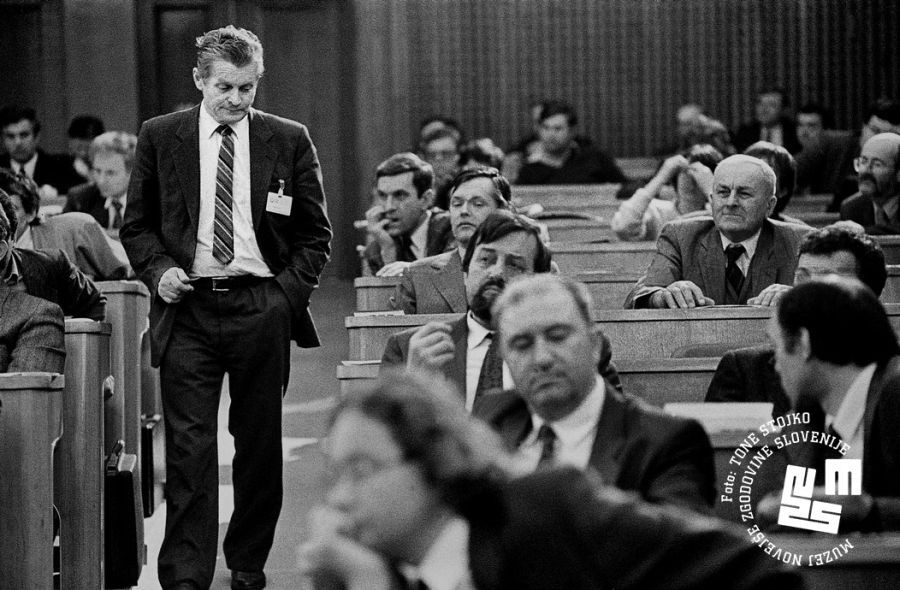27. 1. 1991: Between a relaxation of tensions at home and a deteriorating situation in the Middle East
A relaxation of tensions in Yugoslavia?
The main domestic-policy event concerned the agreement between the Presidency of the SFRY and the Croatian delegation concluded Saturday morning. This led to at least temporary relief across the whole country, because the situation in Croatia had already been so tense that an outbreak of a civil war seemed imminent.
At the same time, the developments “in the field” suggested that the optimistic predictions may have been a little premature, because some armed incidents already developed in the Knin region and other ethnically mixed areas as early as Saturday night. Thus, for instance, in the Slavonian town of Pakrac the balcony of a Croatian Democratic Union (HDZ) official was hit by multiple explosive devices. Accordingly, doubts about the permanence of this agreement were also expressed in the international media. For example, in this context the Italian La Reppublica commented on the developments as follows: “The question remains: Is this already peace or merely a ceasefire? It is too early to answer this question considering that even yesterday the situation threatened to escalate into an armed conflict . . .”
Kiro Gligorov elected Macedonian president
Left somewhat in the shadow of the developments in Belgrade and Croatia was the news from Macedonia, where on Sunday the multi-party assembly of the Socialist Republic of Macedonia elected the first democratic president of this Yugoslav republic. The former finance minister of Yugoslavia, Kiro Gligorov, became president and performed this function up until 1999. Macedonia gained independence under his leadership.
Aggravated situation in the Persian Gulf
While the situation in Yugoslavia was at least temporarily stabilising, hostilities were increasing in the Middle East. In light of the increasingly difficult situation, in which the Scud missiles fired at Israel and Saudi Arabia did not have any major effect due to successful air defence, the Iraqi dictator Saddam Hussein decided to step up the aggression. He ordered oil be spilled from five Iraqi tankers in the Persian Gulf to prevent US marines from landing on Kuwait’s coast. A Pentagon official described it as an act of “environmental terrorism”. On the other hand, the Iraqi side claimed that the oil spill was caused by American air strikes on Iraqi tankers.
Ski jumping at Planica
In the shadow of these watershed developments in the domestic and international political spheres, everyday life went on as usual. The attention of Slovenian sports enthusiasts was directed towards the Planica Valley, where a national ski jumping championship took place on Saturday and Sunday. Franci Petek triumphed in both competitions. Joining him on the podium were Janez Debelak, Miran Tepeš and Goran Janus.
Author: Matic Batič
Similar articles
-
Triumphant Year of 1991
-
9. 5. 1991: Facilitated processing of independence laws
-
2. 3. 1991: Slovenians abroad and around the world in concern for Slovenia
-
1. 3. 1991: Franco Juri against the transfer of conscripts to the Slovenian Territorial Defence
-
28. 2. 1991: Prepared defence and protection act proposal to ensure a plebiscite decision
-
27. 2. 1991: The persistently looming red star
-
26. 2. 1991: A hopeless search for the Yugoslav modus vivendi
-
16. 2. 1991: Ciril Ribičič on the red star and reservations about the dissolution of Yugoslavia
-
15. 2. 1991: Two thirds of respondents have faith in an independent Slovenia
-
27. 1. 1991: Between a relaxation of tensions at home and a deteriorating situation in the Middle East


